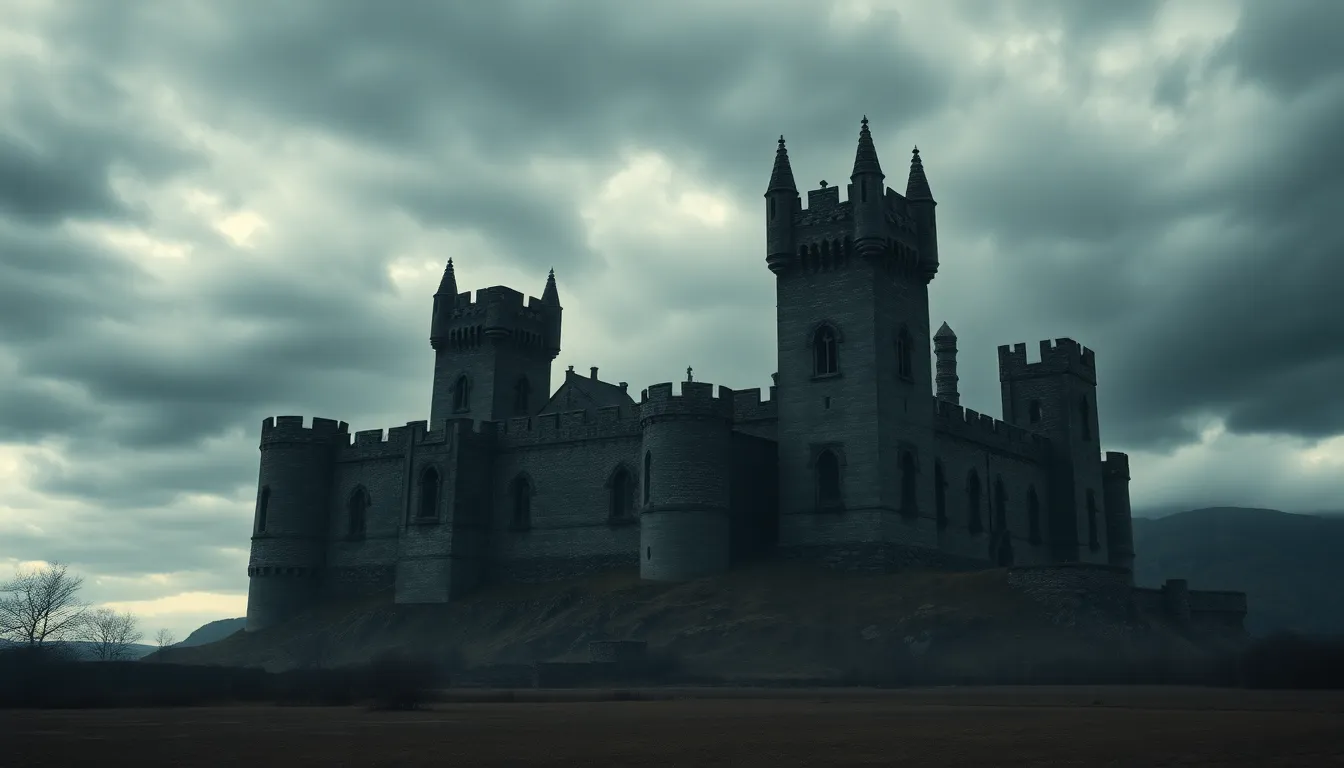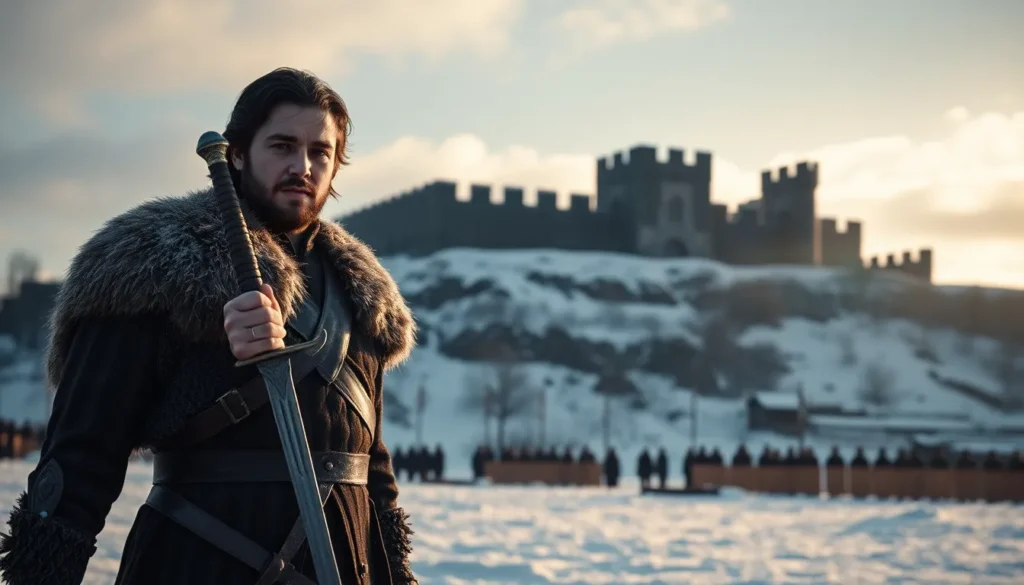In the twisted world of Westeros, few characters evoke as much hatred as Ramsay Bolton. Known for his sadistic ways and knack for turning a good meal into a horror show, Ramsay’s reign of terror had viewers cringing and cheering for his demise. But when does this infamous villain finally get his comeuppance?
Fans of “Game of Thrones” have debated this moment with fervor, eagerly anticipating the day when justice is served. Spoiler alert: it’s a satisfying end that leaves audiences feeling like they just devoured a hearty pie after a long, grueling winter. Dive into the details of Ramsay’s fate and discover how one character’s brutal end can bring a sense of closure to a story filled with chaos and betrayal.
Table of Contents
ToggleOverview of Ramsay Bolton’s Character
Ramsay Bolton stands out as one of the most malevolent characters in “Game of Thrones.” He embodies cruelty, delighting in the suffering of others. His sadistic tendencies lead to numerous heinous acts throughout the series, including torture and murder. Many viewers develop a strong disdain for him due to his actions, making him a centerpiece of antagonism in the narrative.
He emerges from brutal beginnings, raised by Roose Bolton, which shapes his violent tendencies. Often, Ramsay seeks power through fear and manipulation. His tactics create a legacy of dread, leaving a lasting impact on characters like Theon Greyjoy. The trauma he inflicts resonates deeply, highlighting the psychological and physical scars of his victims.
An undeniable aspect of his character includes his thrill-seeking nature. Ramsay treats human life as expendable, reveling in control over others. His interactions often involve psychological games, further deepening his portrayal as a master manipulator. Predictably, Ramsay’s excesses draw ire from fans, leading to eager discussions about his eventual demise.
Themes of betrayal and chaos frequently surround Ramsay’s actions. His alliances and loyalties prove fleeting, as self-interest drives him. The unpredictability of his character maintains viewer engagement, contributing to ongoing debates about justice in storytelling. His descent into villainy pushes the narrative forward, setting the stage for dramatic confrontations.
Ramsay Bolton symbolizes the darker elements of human nature within the series. His cruel ambitions provide insight into the complexities of power dynamics. He ultimately becomes a catalyst for change, prompting viewers to reflect on moral questions amidst a backdrop of war and treachery.
Key Events Leading to His Demise

Ramsay Bolton’s story arcs reveal the key moments that culminate in his downfall. Significant events contribute to his ultimate fate.
The Rise of Ramsay Bolton
Ramsay Bolton rises to power through cunning and cruelty. He secures his position by gaining his father’s favor. Manipulation becomes his tool, as he uses fear to control others. His sadistic nature alienates allies, yet he remains a formidable antagonist. Engaging in violent acts solidifies his reputation, making him a figure of disdain within Westeros. Over time, Ramsay claims title and lands, cementing his role as a key player in the power struggle. Each act of terror escalates his notoriety, showcasing the lengths he will go for dominance.
Notable Conflicts and Enemies
Ramsay’s rise leads to numerous conflicts and fierce enemies. Theon Greyjoy embodies one of his most notable rivals, having suffered greatly under Ramsay’s sadistic schemes. Sansa Stark becomes another target, trapped in his web of manipulation. Jon Snow and the Stark family grow increasingly aware of Ramsay’s brutal tactics, sparking tensions that set the stage for confrontation. Each conflict deepens Ramsay’s isolation, foreshadowing the repercussions of his actions. Ultimately, his enemies unite against him, driven by the desire for justice and retribution. Their determination marks a pivotal shift in the struggle for power in the North.
The Final Confrontation
Ramsay Bolton faces his end during significant events in his pursuit of power, culminating in his demise. His brutal reign concludes amid the Siege of Winterfell and the subsequent encounter with Jon Snow.
The Siege of Winterfell
Jon Snow, leading an alliance of Stark supporters, launches the Siege of Winterfell to reclaim his home. During this pivotal moment, the united forces of House Stark rise against Ramsay’s tyranny. The siege reflects the culmination of betrayal and alliances formed against Ramsay’s cruelty. He desperately tries to maintain control by using Sansa Stark as a pawn, signaling his ultimate manipulation. His efforts crumble as Jon’s forces breach Winterfell’s defenses. The siege sets the stage for confrontation and marks a decisive shift in the North’s power dynamics.
The Battle Against Jon Snow
The fierce battle against Jon Snow becomes the final act of Ramsay’s dark legacy. Jon, fueled by revenge and justice, leads the Stark forces with unwavering determination. Their clash epitomizes the struggle between good and evil, highlighting Ramsay’s sadistic nature. During the battle, Ramsay showcases his cunning by using psychological tactics, such as involving his hounds, but these tactics ultimately backfire. As Jon confronts Ramsay, a fierce duel ensues, leading to Ramsay’s capture. The brutality of the encounter serves as a powerful resolution to Ramsay’s actions throughout the series, sealing his fate within the walls of Winterfell.
The Death of Ramsay Bolton
Ramsay Bolton’s brutal end comes during the Siege of Winterfell in Season 6 of “Game of Thrones.” Jon Snow and his allies finally confront Ramsay, culminating in a fiercely fought battle for control of the Stark ancestral home.
The Circumstances Surrounding His Death
The siege represents the culmination of Ramsay’s sadistic reign. Sansa Stark becomes a key figure, as Ramsay uses her as leverage throughout his tyranny. Jon Snow’s forces, united by a shared purpose, storm Winterfell to reclaim their home and rid themselves of Ramsay’s cruelty. A fierce standoff ensues, showcasing Jon’s strength and resolve against Ramsay’s twisted tactics. Jon captures Ramsay, marking the end of his reign of terror. The moment signifies not just Ramsay’s downfall but also the reclamation of Stark honor and power in the North.
The Aftermath of His Demise
After his death, the power dynamics in Westeros shift significantly. Sansa Stark expresses her own sense of justice, directly confronting Ramsay’s atrocities. The North begins to heal from the scars of Ramsay’s cruelty, as the Stark legacy returns to Winterfell. Allies rally around Jon Snow and Sansa, ready to rebuild following their victory. Ramsay’s demise ultimately paves the way for a new era, as the Starks reclaim their place in the North and restore their family honor. His death amplifies themes of justice, transformation, and the lasting impact of tyranny on the realm.
Impact on the Series
Ramsay Bolton’s death significantly alters the narrative landscape of “Game of Thrones.” Characters like Sansa Stark experience substantial character growth after confronting his atrocities. Jon Snow’s defeat of Ramsay symbolizes the reclamation of Stark honor and power in the North, sending a ripple effect throughout Westeros.
The shift in power dynamics facilitates new alliances. With Ramsay gone, the North can unite under leaders committed to healing and rebuilding. Tensions among rival factions decrease, enhancing the chances for stability and cooperation. Jon and Sansa’s leadership fosters hope and resilience among their allies.
Themes of justice and retribution resonate strongly after Ramsay’s demise. Fans sense a resolution to ongoing conflicts, offering a sense of closure amidst a chaotic narrative. This moment reinforces the significance of morality within the series, prompting viewers to reflect on the consequences of cruelty in a brutal world.
Ramsay’s death also emphasizes the importance of collective action. Stark supporters and allies come together to stand against tyranny, showcasing their strength. The characters’ unity inspires further developments in the plot, illustrating how shared struggles lead to transformative outcomes.
Finally, Ramsay Bolton’s legacy continues to influence the story even after his death. His sadistic nature serves as a grim reminder of the darkness that persists in power struggles. Characters like Theon Greyjoy carry the psychological scars of their encounters with him, affecting their future decisions and relationships.
Ramsay Bolton’s death marks a significant turning point in “Game of Thrones.” His brutal reign of terror ends at the hands of Jon Snow, symbolizing the restoration of Stark honor and justice in the North. This pivotal moment not only brings closure to Sansa Stark’s harrowing experiences but also sets the stage for a new era in Westeros.
The aftermath of Ramsay’s demise reshapes alliances and fosters healing among the characters affected by his cruelty. As the Stark legacy reclaims its rightful place, themes of justice and transformation resonate throughout the realm. Ramsay’s legacy serves as a haunting reminder of the darkness within power struggles, leaving an indelible mark on the story and its characters.





